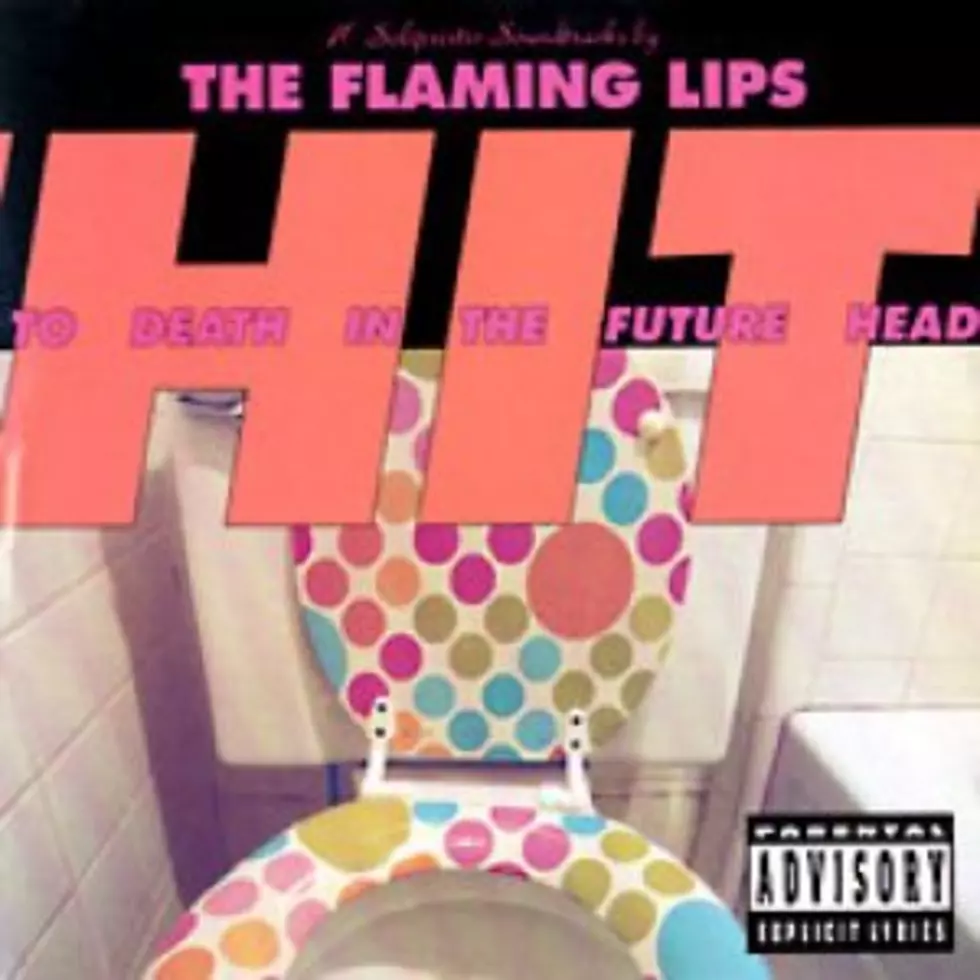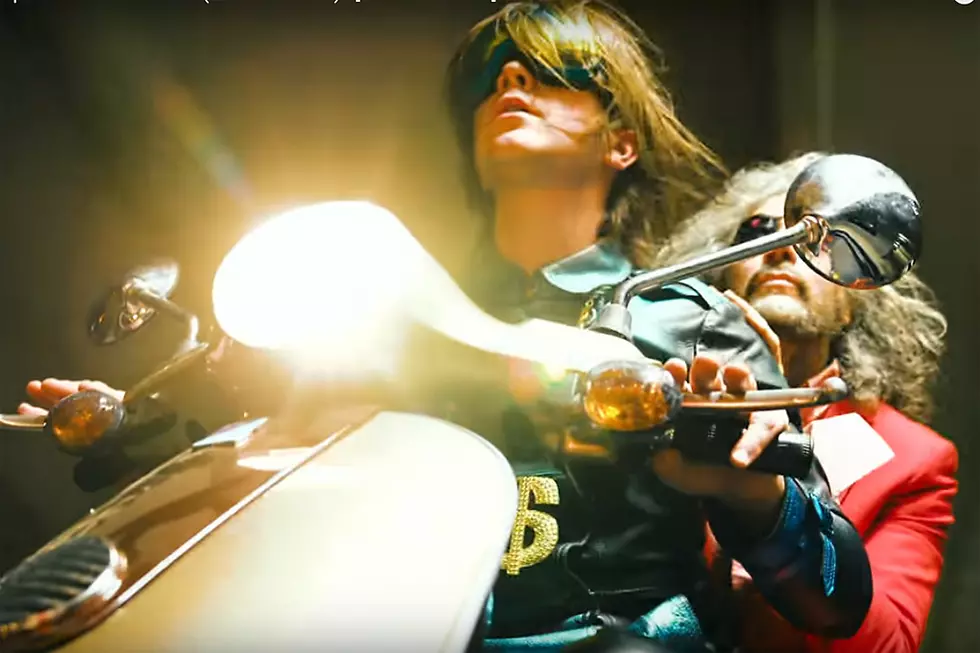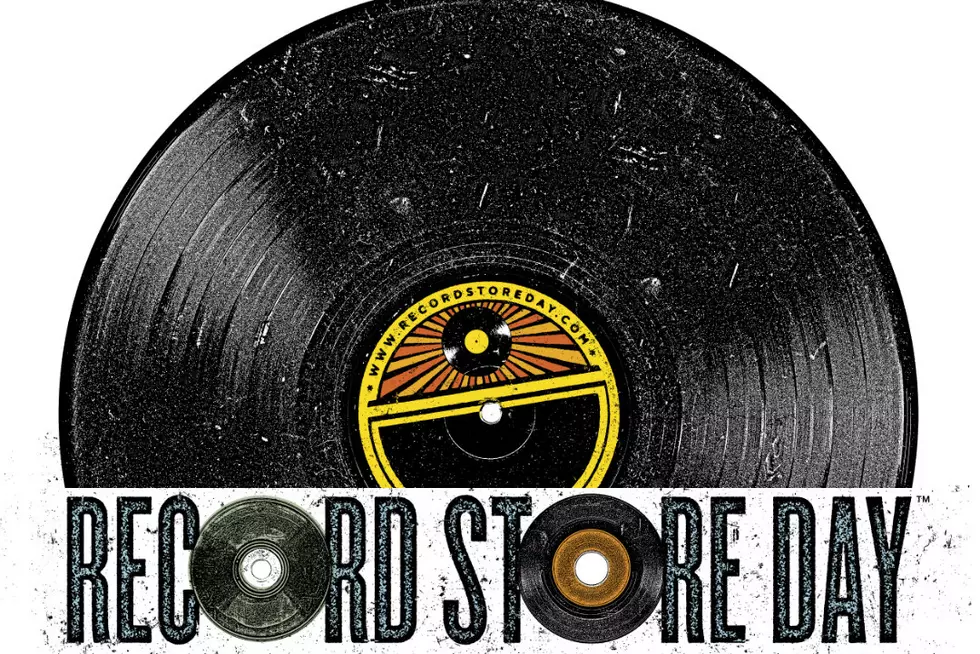
23 Years Ago: The Flaming Lips Join the Majors With ‘Hit to Death in the Future Head’
The year 1992 marks a magical period for music, especially if you were young and in some sort of punk or indie band. Due to the runaway success of bands like Nirvana, Pearl Jam and the Smashing Pumpkins, major label studios began signing just about every band that happened to exist at that time. And it seemed like a band's chances of being signed to a major were exponentially higher if the band had a weird name.
Enter the Flaming Lips.
The group of dirty-hippy Pink Floyd fans known as the Flaming Lips had been tooling around Oklahoma and throughout the Midwest since the early '80s. They'd built a small-but-faithful fanbase over the years, and the independent success of their 1990 album, In a Priest Driven Ambulance, got the attention of Warner Bros. Records, who signed them later that year.
Despite some turbulent recording sessions and the departure of two members, the Lips managed to use the fat wad of cash provided by their new corporate backers to create a fantastic major-label debut, Hit to Death in the Future Head, which came out on Aug. 5, 1992.
The aforementioned turbulence seemed to stem directly from their new major-label backing. According to Lips frontman Wayne Coyne, one member, Nathan Roberts, was more interested in playing the part of the rock star than working in a band.
"Nathan thought you got on Wamer (sic) Borthers and then you could just buy a mansion and be on American Bandstand," Coyne told NME back in 1999. "And that didn't happen, so within six months he'd gone."
Another member, Jonathan Donahue, decided to get back to fronting his own band, Mercury Rev. They soon released their debut album, Yerself Is Steam.
The Lips as a whole felt a lack of direction while working on their Warner debut in 1991. Coyne told NME:
We thought we had a lot of ideas, but we didn't really. We had the freedom of having more money to spend, but that changes everybody. It's a strange record, we were just lost. Nathan was renting a pile of porn tapes this high every day, he would wake up and watch them and we would go downstairs to the studio: 'Here we are, we're exploring all the brand new sounds we've had in our heads for years.' But everybody would just drift back upstairs.
Once the album was complete, the band found itself short two people. But they found excellent replacements in drummer Steven Drozd and guitarist Ronald Jones. They were ready to leap into the mainstream. Except, they couldn't, at least not right away. Hit to Death in the Future Head was forced to sit on the shelf for nearly a year as the band and the label worked out complications over a sample the band used.
Then, finally, they released their first album to the world-at-large. The lead single, "Talkin' 'Bout the Smiling Deahporn Blues (Everyone Wants to Live Forever)," fit right in with the music of the early '90s:
The lead song sounds like a mix between psychedelia and pop music, but the pop aspects of the record quickly become overwhelmed with droning guitars, hypnotic drumming and languid vocals. You could enjoy this album completely sober, but you'd probably miss a lot. Take, for example, "The Sun":
That's not to say that the disc is nothing but drugged-out hippie fodder. There's much and varied rock and roll here. Just listen to "The Magician vs. the Headache":
Since then, the Flaming Lips have managed to hold on to their major label status while steadfastly refusing to do anything that makes sense, at least to anyone on the outside looking in.
And from this apparent chaos, they've managed to make some truly awe-inspiring music.
More From Diffuser.fm









